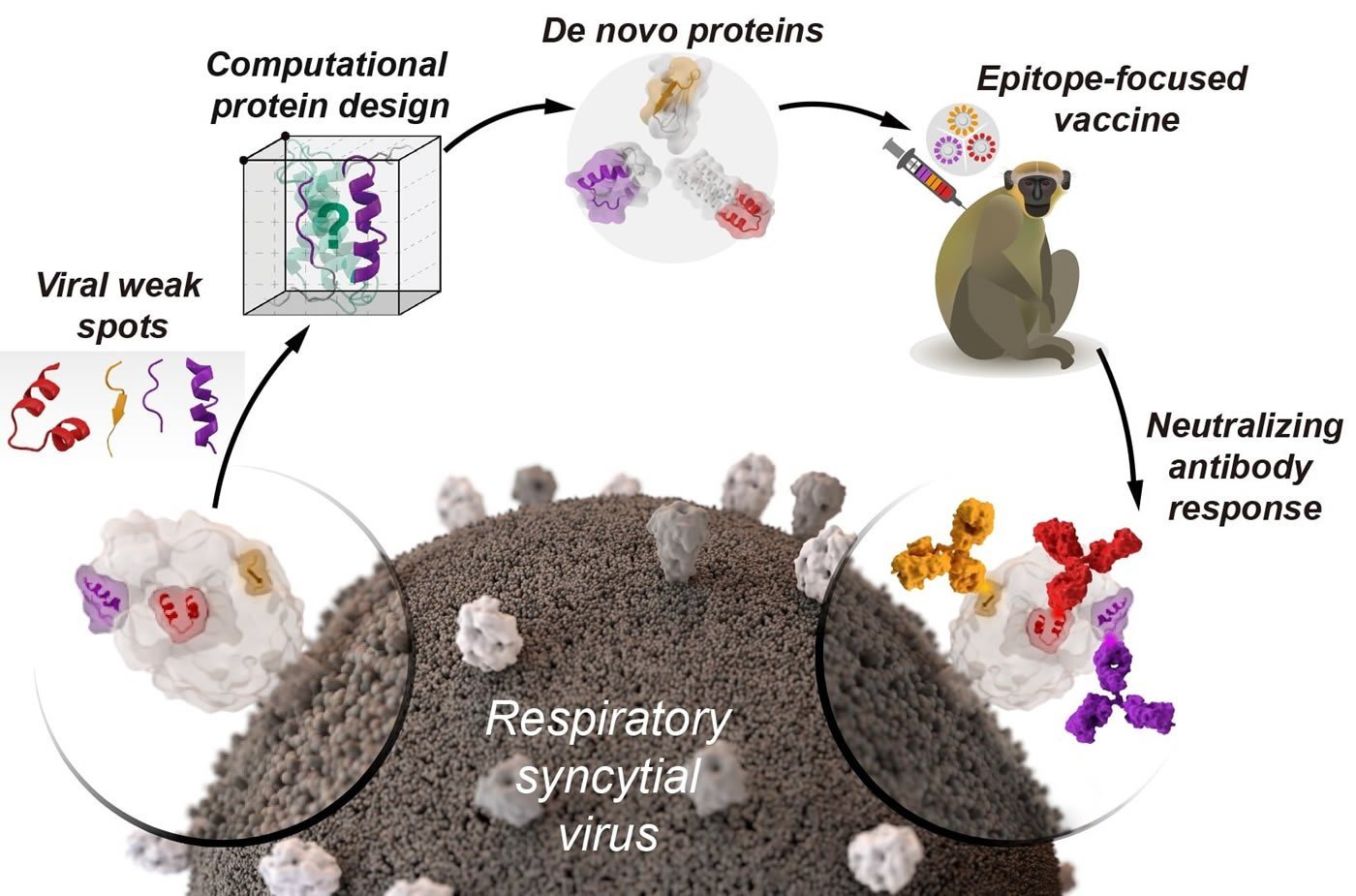Summary: Using computational methods, researchers created artificial proteins that triggered immune responses and produced infection specific antibodies. The findings indicate it will be possible to design vaccines that contain artificial antibodies, expediting the process of vaccine development.
Source: EPFL
Vaccines are one of the most effective interventions to prevent the spreading of infectious diseases. They trigger the immune system to produce antibodies that protect the body against infection. However, we still lack efficacious vaccines for many important pathogens like the flu or dengue fever.
“When a vaccine doesn’t work well, we tend to think that it’s because the antibodies produced are not protective,” says Bruno Correia, a professor at the Laboratory of Protein Design & Immunoengineering (LPDI) in EPFL’s School of Engineering. “It’s usually because our immune system is simply making the wrong type of antibodies.” Scientists in Correia’s lab have now developed a strategy to design artificial proteins that very precisely instruct the body’s immune system which antibodies to produce. The study has been published in the journal Science.
Building proteins like Legos
The EPFL team created artificial proteins designed using computational methods. “They don’t exist in nature,” says Che Yang, a Ph.D. student and co-leading author in the study.
“We developed a protein design algorithm called TopoBuilder. It lets you construct proteins virtually as if you were putting Lego bricks together. Assembling artificial proteins that have novel functions is absolutely fascinating.” says Fabian Sesterhenn, a Ph.D. student and co-leading author.
A disease without a vaccine
Correia’s team focused on the design of de novo proteins that can result in a vaccine for the respiratory syncytial virus (RSV). RSV causes serious lung infections and is a leading cause of hospitalization in infants and the elderly. “Despite several decades of research, up to today, there is still no vaccine or cure for respiratory syncytial virus,” says Correia.

The artificial proteins were created in the laboratory and then tested in animal models, and triggered the immune system to produce specific antibodies against weak spots in RSV. “Our findings are encouraging because they indicate that one day we will be able to design vaccines that target specific viruses more effectively, by prompting the immune system to generate those particular antibodies,” says Correia. “We still have a lot of work ahead to make the vaccine we developed more effective—this study is a first step in that direction.”
Methods for creating de novo proteins have applications well beyond immunology—they can also be used in various branches of biotechnology to expand the structural and functional range of natural proteins. “We can now use the protein design tools to create proteins for other biomedical applications such as protein-based drugs or functionalized biomaterials,” concludes Sesterhenn.
About this neuroscience research article
Source:
EPFL
Media Contacts:
Press Office – EPFL
Image Source:
The image is credited to EPFL.
Original Research: Closed access
“New Approach to Design Functional Antibodies for Precision Vaccines”. by Correia et al.
Science doi:10.1126/science.aay5051
Abstract
New Approach to Design Functional Antibodies for Precision Vaccines
De novo protein design has been successful in expanding the natural protein repertoire. However, most de novo proteins lack biological function, presenting a major methodological challenge. In vaccinology, the induction of precise antibody responses remains a cornerstone for next-generation vaccines. Here, we present a protein design algorithm called TopoBuilder, with which we engineered epitope-focused immunogens displaying complex structural motifs. In both mice and nonhuman primates, cocktails of three de novo–designed immunogens induced robust neutralizing responses against the respiratory syncytial virus. Furthermore, the immunogens refocused preexisting antibody responses toward defined neutralization epitopes. Overall, our design approach opens the possibility of targeting specific epitopes for the development of vaccines and therapeutic antibodies and, more generally, will be applicable to the design of de novo proteins displaying complex functional motifs.generally risk‐averse, often recommending more urgent care than appropriate.
Feel Free To Share This Neuroscience News.






